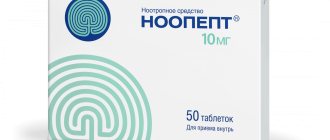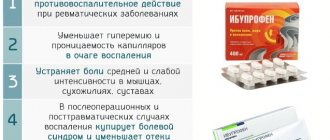Lindinet 20
Use during pregnancy and breastfeeding
The drug is contraindicated for use during pregnancy and lactation.
The components of the drug are excreted in breast milk in small quantities.
When used during lactation, milk production may decrease.
Use for liver dysfunction
Contraindicated in case of liver dysfunction.
Use for renal impairment
The drug is not recommended for use in patients with kidney disease.
special instructions
Before starting to use the drug, it is necessary to conduct a general medical examination (detailed family and personal history, blood pressure measurement, laboratory tests) and gynecological examination (including examination of the mammary glands, pelvic organs, cytological analysis of a cervical smear). Such examinations during the period of taking the drug are carried out regularly, every 6 months.
The drug is a reliable contraceptive: the Pearl index (an indicator of the number of pregnancies occurring during the use of a contraceptive method in 100 women over 1 year) when used correctly is about 0.05. Due to the fact that the contraceptive effect of the drug from the start of administration is fully manifested by the 14th day, it is recommended to additionally use non-hormonal methods of contraception in the first 2 weeks of taking the drug.
In each case, before prescribing hormonal contraceptives, the benefits or possible negative effects of their use are individually assessed. This issue must be discussed with the patient, who, after receiving the necessary information, will make the final decision on the preference for hormonal or any other method of contraception.
The woman's health condition must be carefully monitored. If any of the following conditions/diseases appear or worsen while taking the drug, you must stop taking the drug and switch to another, non-hormonal method of contraception:
- diseases of the hemostatic system;
- conditions/diseases predisposing to the development of cardiovascular and renal failure;
- epilepsy;
- migraine;
- the risk of developing an estrogen-dependent tumor or estrogen-dependent gynecological diseases;
- diabetes mellitus not complicated by vascular disorders;
- severe depression (if depression is associated with impaired tryptophan metabolism, then vitamin B6 can be used for correction);
- sickle cell anemia, because in some cases (for example, infections, hypoxia), estrogen-containing drugs for this pathology can provoke thromboembolism;
- the appearance of abnormalities in laboratory tests assessing liver function.
Thromboembolic diseases
Epidemiological studies have shown that there is a connection between taking oral hormonal contraceptives and an increased risk of developing arterial and venous thromboembolic diseases (including myocardial infarction, stroke, deep vein thrombosis of the lower extremities, pulmonary embolism). An increased risk of venous thromboembolic diseases has been proven, but it is significantly less than during pregnancy (60 cases per 100 thousand pregnancies). When using oral contraceptives, arterial or venous thromboembolism of the hepatic, mesenteric, renal or retinal vessels is very rarely observed.
The risk of arterial or venous thromboembolic disease increases:
- with age;
- when smoking (heavy smoking and age over 35 years are risk factors);
- if there is a family history of thromboembolic diseases (for example, parents, brother or sister). If a genetic predisposition is suspected, it is necessary to consult a specialist before using the drug;
- for obesity (BMI more than 30 kg/m2);
- with dislipoproteinemia;
- with arterial hypertension;
- for diseases of the heart valves complicated by hemodynamic disorders;
- with atrial fibrillation;
- with diabetes mellitus complicated by vascular lesions;
- with prolonged immobilization, after major surgery, after surgery on the lower extremities, after severe trauma.
In these cases, it is assumed that the use of the drug should be temporarily discontinued (no later than 4 weeks before surgery, and resumed no earlier than 2 weeks after remobilization).
Women after childbirth have an increased risk of venous thromboembolic disease.
It should be taken into account that diabetes mellitus, systemic lupus erythematosus, hemolytic-uremic syndrome, Crohn's disease, ulcerative colitis, sickle cell anemia increase the risk of developing venous thromboembolic diseases.
It should be taken into account that resistance to activated protein C, hyperhomocysteinemia, protein C and S deficiency, antithrombin III deficiency, and the presence of antiphospholipid antibodies increase the risk of developing arterial or venous thromboembolic diseases.
When assessing the benefit/risk ratio of taking the drug, it should be taken into account that targeted treatment of this condition reduces the risk of thromboembolism. Symptoms of thromboembolism are:
- sudden chest pain that radiates to the left arm;
- sudden shortness of breath;
- any unusually severe headache that continues for a long time or appears for the first time, especially when combined with sudden complete or partial loss of vision or diplopia, aphasia, dizziness, collapse, focal epilepsy, weakness or severe numbness of half the body, movement disorders, severe unilateral pain in the calf muscle, symptom complex “acute abdomen”.
Tumor diseases
Some studies have reported an increased incidence of cervical cancer in women who took hormonal contraceptives for a long time, but the results of the studies are inconsistent. Sexual behavior, infection with the human papillomavirus and other factors play a significant role in the development of cervical cancer.
A meta-analysis of 54 epidemiological studies found that there is a relative increase in the risk of breast cancer among women taking oral hormonal contraceptives, but the higher detection rate of breast cancer may have been associated with more regular medical screening. Breast cancer is rare among women under 40, whether they take hormonal birth control or not, and increases with age. Taking pills can be considered one of many risk factors. However, the woman should be made aware of the possible risk of developing breast cancer based on an assessment of the benefit-risk ratio (protection against ovarian and endometrial cancer).
There are few reports of the development of benign or malignant liver tumors in women taking hormonal contraceptives for a long time. This should be kept in mind when differentially assessing abdominal pain, which may be associated with an increase in liver size or intraperitoneal bleeding.
Chloasma
Chloasma can develop in women with a history of this disease during pregnancy. Those women who are at risk of developing chloasma should avoid contact with sunlight or ultraviolet radiation while taking Lindinet 20.
Efficiency
The effectiveness of the drug may be reduced in the following cases: missed pills, vomiting and diarrhea, simultaneous use of other drugs that reduce the effectiveness of birth control pills.
If the patient is concomitantly taking another drug that may reduce the effectiveness of birth control pills, additional methods of contraception should be used.
The effectiveness of the drug may decrease if, after several months of their use, irregular, spotting or breakthrough bleeding appears, in such cases it is advisable to continue taking the tablets until they run out in the next package. If at the end of the second cycle menstrual-like bleeding does not begin or acyclic bleeding does not stop, stop taking the pills and resume it only after pregnancy has been ruled out.
Changes in laboratory parameters
Under the influence of oral contraceptive pills, due to the estrogen component, the level of some laboratory parameters (functional indicators of the liver, kidneys, adrenal glands, thyroid gland, hemostasis indicators, levels of lipoproteins and transport proteins) may change.
Additional Information
After acute viral hepatitis, the drug should be taken after normalization of liver function (no earlier than 6 months).
With diarrhea or intestinal disorders, vomiting, the contraceptive effect may be reduced. While continuing to take the drug, it is necessary to use additional non-hormonal methods of contraception.
Women who smoke have an increased risk of developing vascular diseases with serious consequences (myocardial infarction, stroke). The risk depends on age (especially in women over 35 years of age) and on the number of cigarettes smoked.
The woman should be warned that the drug does not protect against HIV infection (AIDS) and other sexually transmitted diseases.
Impact on the ability to drive vehicles and operate machinery
No studies have been conducted to study the effect of Lindinet 20 on the abilities necessary to drive a car and operate machinery.
Ethinyl estradiol
Ethinyl estradiol is a highly effective component belonging to the group of estrogens. It is produced by the adrenal glands and ovaries and has an estrogenic effect. In combination with progesterone, ethinyl estradiol regulates the menstrual cycle, provokes the reproduction and division of endometrial cells and has a stimulating effect on the development of secondary sexual characteristics and the uterus in case of their insufficiency. In addition, this type of hormone can mitigate or completely eliminate complications due to dysfunction of the gonads and lower cholesterol levels in the blood. This is confirmed by the instructions for use for Lindinet 20 and 30. Many people are interested in analogues.
Side effects
Contraceptive pills "Lindinet 20", according to reviews, are usually well tolerated. But there are still side effects.
The drug is completely discontinued for the following symptoms: porphyria, hypertension, hearing loss as a result of otospongiosis and hemolytic-uremic syndrome.
The following pathologies are rare: thromboembolism of the arteries and veins of the circulatory system, lower extremities, brain, lungs, as well as aggravation of lupus erythematosus (Libman-Sachs disease).
The most rare are thromboembolism of the arteries and veins of the liver, mesentery of the retina, kidneys and chorea. This is confirmed by the instructions for use and reviews for Lindinet 20.
Reviews
Gynecologists characterize Lindinet 20 as a modern and relatively safe contraceptive. In the absence of contraindications for use, the drug does not have a significant effect on the woman’s body; on the contrary, it has a beneficial effect on the menstrual cycle, improves the quality of skin and nails. Side effects from the Gedeon Richter Lindinet 20 contraceptives, according to reviews, are extremely rare, and the most common include headaches, nausea and decreased libido.
If the drug does not suit you, you should not completely abandon oral contraceptives. In this case, it is necessary to additionally consult with a gynecologist and select another drug.
Price for "Lindinet 20" Tbl. p/o No. 21 (one blister in a cardboard package) - 400–480 rubles. “Lindinet 20” No. 63 (three blisters in a cardboard package) can be found at a price of 850–1100 rubles.
Frequent manifestations
Common side effects include:
- From the reproductive system: absence of menstrual bleeding after discontinuation of the drug, irregular vaginal hemorrhages and discharge, decreased libido, vaginal inflammation, changes in the state of mucus.
- Discomfort, increase in size, soreness and galactorrhea of the mammary glands.
- On the part of the digestive system: diarrhea, vomiting, nausea, granulomatous enteritis, pain in the epigastric region, ulcerative inflammation in the colon, vdenomatous liver damage, hepatitis, liver dysfunction, bile stagnation and cholelithiasis.
- Allergic reactions: rashes, erythema, alopecia, increased pigmentation.
- From the central nervous system: migraines, depression, headaches and emotional lability.
- Weight gain and fluid retention, hyperglycemia, hypertriglyceridemia, decreased tolerance and absorption of carbohydrate compounds by the body as a result of changes in metabolism.
- Decreased hearing function, feeling of discomfort when wearing contact lenses.
- Hypersensitivity.
There are a lot of reviews from gynecologists about Lindinet 20.
Gestoden
The second active component of the drug is gestodene. This is a synthetic progestin that is similar in structure to levonorgestrel, but is superior in selectivity and potency. It inhibits the pituitary synthesis of luteotropin and follitropin, thereby blocking ovulation.
In addition to effects such as blocking egg fertilization, the contraceptive effect is due to a decrease in the sensitivity of the uterine endometrium to the blastocyst and an increase in the viscous properties of the mucus in the cervix, which creates an obstacle to the passage of sperm through it. Regular use of Lindinet 20 over a certain period of time, according to reviews from gynecologists, helps regulate the menstrual cycle and reduces the risk of pathologies of the woman’s reproductive organs, including neoplasms.
The drug should be prescribed by a doctor based on the collected medical history and taking into account the individual characteristics of the patient.
Careful reception
You should take the drug with caution in the following situations:
- Development of azotemia, thrombocytopenia and hemolytic anemia (hemolytic uremic syndrome).
- Liver diseases.
- Quincke's edema caused by a genetic factor.
- Conditions that increase the risk of thromboembolic or thrombotic damage to the arteries and veins, such as age over 35, family history, or smoking.
- Diseases that appeared during pregnancy, as well as while taking other hormonal drugs: chloasma, herpes, porphyria, rheumatic chorea.
- Obesity.
- Hypertension.
- Migraines of a regular nature.
- Dislipoproteinemic syndrome.
- Cramps.
- Heart valve dysfunction.
- A state of prolonged immobility.
- Severe injuries.
- Extensive operations.
- Atrial fibrillation.
What other restrictions do the instructions for use indicate for Lindinet 20?
- Superficial vein thrombophlebitis and varicose veins.
- Postpartum period.
- Depression.
- Biochemical changes in blood composition.
- Systemic lupus erythematosus (Libman-Sachs disease).
- Diabetes mellitus that does not affect blood vessels.
- Granulomatous enteritis.
- Liver diseases in acute and chronic form.
- Anemia (sickle cell).
- Inflammatory processes in the colon against the background of ulcers.
- Elevated levels of triglycerides (glycerol-based lipids) in the blood.
Contraindications
The drug is contraindicated for use in patients with the following manifestations:
- Individual intolerance to the components of the drug or hormones in a certain combination.
- Tendency or presence of factors that can lead to venous thrombosis.
- Ischemia as a precursor to thrombosis.
- Irregular hypertension.
- Damage to arteries and veins by thrombosis and thromboembolism.
- Frequent migraines associated with neurotic disorders.
- Surgery and, as a consequence, prolonged lack of physical activity.
- Blockage of veins in close relatives (thromboembolism).
- Dyslipidemic syndrome.
- Diabetic angiopathy (as a consequence of diabetes mellitus).
- Severe liver damage.
- Cholelithiasis.
- Neoplasms in the liver.
- Pigmentary hepatosis (only some forms).
- Yellowness of the skin as a result of taking steroid drugs.
- Otospongiosis, severe itching.
- Vaginal bleeding.
- Pathological inflammatory processes in the pancreas with increased triglycerides in the blood.
- Smoking, especially over the age of 35.
- Tumors of the mammary glands and organs of the female reproductive system.
- Lactation.
- Pregnancy.
How to take Lindinet 20? Reviews confirm that this should be done only after consultation with a specialist.





